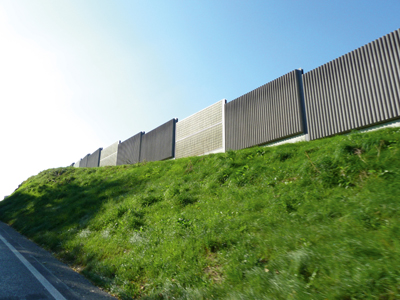Strategische Laermkartierung 2017/en: Unterschied zwischen den Versionen
Tschug (Diskussion | Beiträge) |
Tschug (Diskussion | Beiträge) |
||
| Zeile 12: | Zeile 12: | ||
To achieve this, strategic noise pollution maps are used to obtain a comprehensive analysis of environmental noise in areas exposed to various noise sources.<br/><br/> |
To achieve this, strategic noise pollution maps are used to obtain a comprehensive analysis of environmental noise in areas exposed to various noise sources.<br/><br/> |
||
| + | In a joint project run by the Ministry for the Environment and Consumer Safety and the Saarland Council of Cities and LGAs, noise pollution maps are therefore prepared for all major traffic routes used by more than 3 million vehicles per year. |
||
| − | In einem gemeinsamen Projekt des Ministeriums für Umwelt und Verbraucherschutz und des saarländischen Städte- und Gemeindetag wurden deshalb die Lärmkarten für alle Hauptverkehrsstraßen mit mehr als 3 Mio. Fahrzeugen pro Jahr erarbeitet. |
||
</p> |
</p> |
||
Version vom 24. Mai 2022, 09:48 Uhr
Strategic noise pollution mapping (2017)
Viewer
Go to application: ‘Strategic noise pollution mapping (2017)’
Description
Noise pollution is becoming one of the biggest environmental problems in Europe. The EU Environmental Noise Directive pursues the aim of reducing, preventing or mitigating the harmful effects that result from environmental noise pollution.
To achieve this, strategic noise pollution maps are used to obtain a comprehensive analysis of environmental noise in areas exposed to various noise sources.
In a joint project run by the Ministry for the Environment and Consumer Safety and the Saarland Council of Cities and LGAs, noise pollution maps are therefore prepared for all major traffic routes used by more than 3 million vehicles per year.
Ansprechpartner
Ministerium für Umwelt und Verbraucherschutz
Referat E/3 "Immissionsschutz, Anlagentechnik"
Nadine Uhrhan
E-Mail-Kontakt
Telefon: +49 681 501-4607
